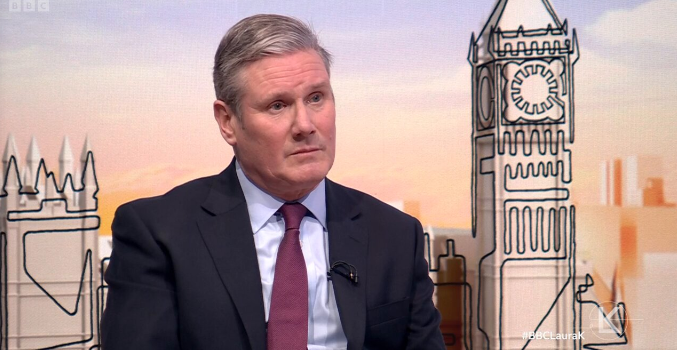
Political Debate Intensifies as Labour Struggles with Union Demands and Financial Responsibility
Labour is facing mounting pressure over its approach to economic and social issues as the party gears up for the upcoming general election. Critics from both within and outside the party have raised concerns about its stance on wealth redistribution and financial responsibility.
On one side, Labour is being urged by unions, including Sharon Graham of Unite, to adopt bolder policies, especially in areas like the renationalisation of key industries such as steel and energy. Unite, the UK’s second-largest union and Labour’s biggest financial backer, has warned there will be “no blank cheque” for the party unless it prioritises these issues. Graham has also called for a stronger focus on tackling wealth inequality, especially as living costs for the middle and lower-income groups continue to rise.
Meanwhile, Sir Keir Starmer, leader of the Labour Party, has been adamant about prioritising financial prudence, seeking to reassure voters that his party can manage the economy responsibly. Starmer has emphasised the importance of avoiding reckless spending but acknowledged that this should not prevent bold reforms, particularly in housing. He has indicated the need for hundreds of thousands more houses and stressed that tackling the planning system will be a central focus of Labour’s agenda.
However, this balance between financial responsibility and bold policy proposals has caused tension within the party. The left-wing of the party, as well as some of Starmer’s closest allies, are becoming increasingly vocal in their demand for more radical reforms, such as the removal of the two-child benefit cap. Shadow work and pensions secretary Jonathan Ashworth has described the policy as “heinous” and detrimental to children in poverty.
The situation is further complicated by the party’s relationship with environmental activists. In an attempt to distance itself from the controversial campaign group Just Stop Oil, with which it shares a mutual donor, Starmer denied reports of Labour officials meeting with activists, calling the allegations “nonsense”. This move has sparked debate over how far the party should align itself with environmental movements without alienating voters.
As the party prepares for the upcoming election, the challenge for Labour will be striking the right balance between financial prudence and the bold, transformative policies many within the party are calling for.









